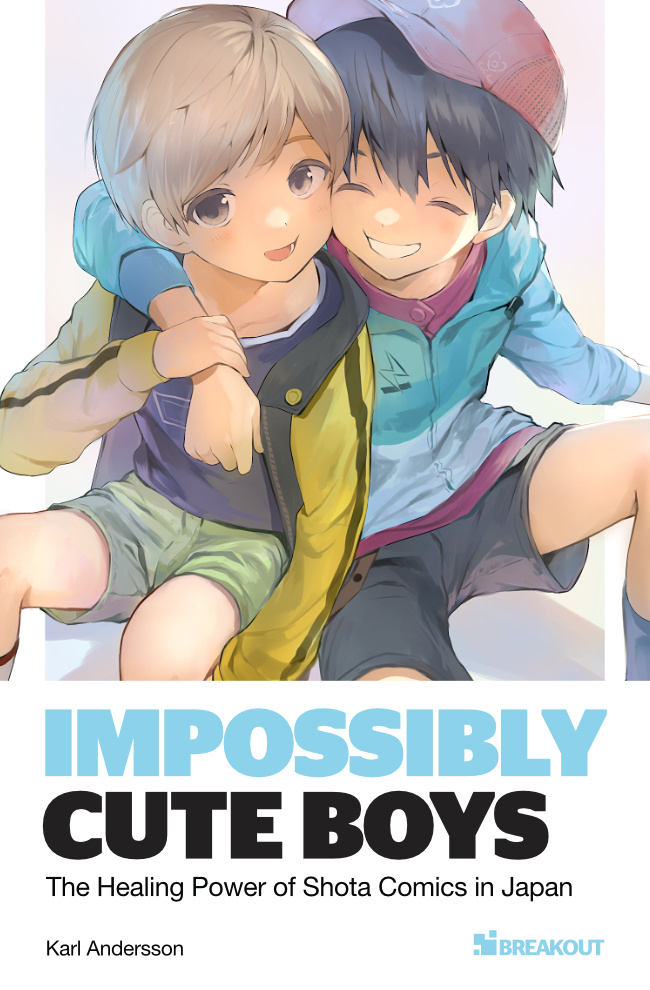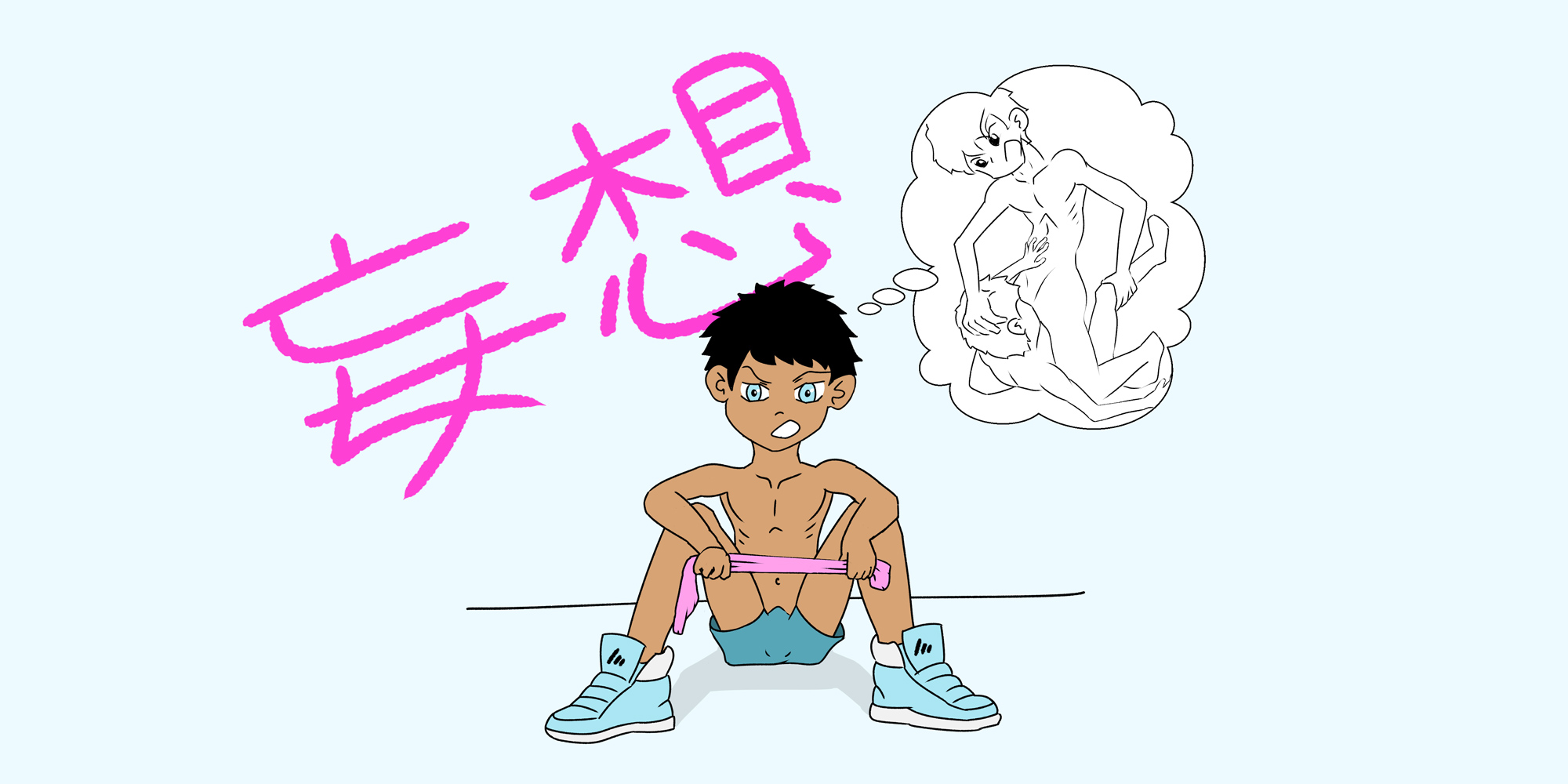The Japanese word mōsō (妄想) translates as “delusion” or “wild idea”, but it is so common in discussions on shota that I want to understand it more in depth. Exactly what does mōsō mean? I’ll provide some examples to put the word in context.
Example 1: Taimatsu-san’s chat with Budouuri-san, in Fudanshi ni kiku:
B:再解釈をどう独自に展開させるかという 工夫がありましたね。再解釈は自由でしたし。
T:今の言葉で言うと「妄想」ですね。
B:はい。ただ今とは違い、セックスして終 わり、という作品はありませんでした。
T:葡萄瓜さんもそうした妄想をしました か?
B:しましたが、形になるまでには至らずと いう感じですね。
Here “delusion” is not only used as a noun but as a verb, but as something you can do. If we depart form the verb “delude” in its literal sense “make (someone) believe something that is not true”, then to create delusions might be to venture into a world that one know isn’t “true”, and which can be enjoyed precisely therefore.
Example 2: Takeru-san explains how he uses shota, in Shota Ripōto 1:
一番の使い方は、理想や妄想を描いて表現し、伝えるための手 段です。好みのショタを、時間 や仕事など気にすることなく描いている瞬間が最も楽しいで す。
Here, Takeru-san mentions mōsō next to risō (理想) – “ideal” – which likewise is something disconnected from the actual reality. It gives the impression that mōsō is used in a much more positive way than what “delusion” usually means.
Example 3: Email interview with a shotacon
自分で描いたプロレスショタを脳内で妄想しています。
Here, my research participant uses mōsō as a verb without the を particle; mōsō shiteimasu (妄想しています) would translate to “I am delusional”, or in his case, “I am delusional in my brain”. Again, the word delusion/delusional seems too negative – it also sometimes translates to “paranoia” and being “paranoid”.
But maybe mōsō shouldn’t be understood as too positive. The negative vibe might refer to some kind of sickness or kinkiness that would be lost in more neutral words like “illusion” or simply “fantasy”. Maybe “perverted”, in a joking sense, would do the word justice?
The more I think about it, the more I like the word “delusion”. Shota lets its fans delude themselves by way of consciously creating delusions. The delusions are sick in the sense that they cannot exist outside our heads or the papers or screens that they have been transferred to. That’s why we like them – we like the sick or kinky or crazy aspect of them, and that aspect is the heart of delusions.
What do you think? I would appreciate if a native Japanese speaker and shotacon could elaborate on how they understand and use the word mōsō.


Comment